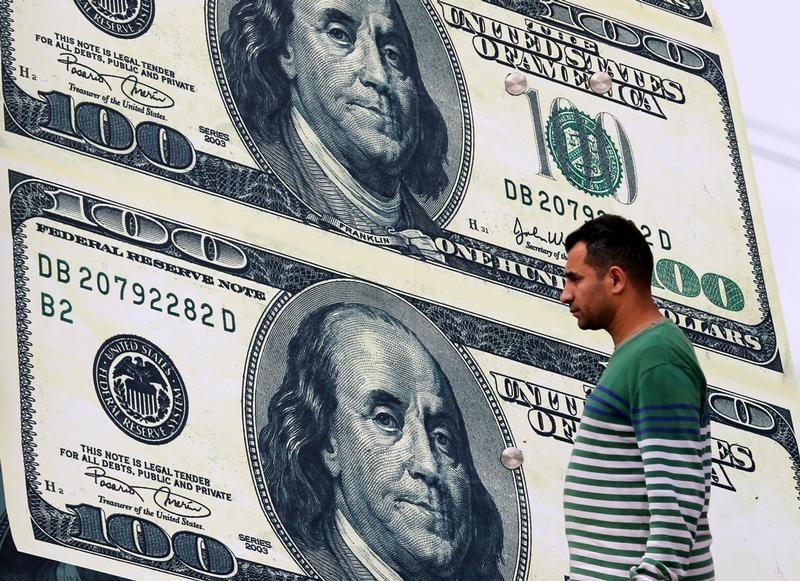By Peter Nurse
Investing.com – The U.S. dollar stabilized in early European trade Wednesday, with traders trying to work out the likely path of the Federal Reserve’s monetary policy by digesting economic data and comments from policy makers.
At 02:00 ET (06:00 GMT), the , which tracks the greenback against a basket of six other currencies, traded 0.1% higher at 101.510, rebounding after the previous session’s 0.4% slide.
Federal Reserve Bank of St. Louis President James Bullard said, in an interview with Reuters on Tuesday, that he favored continued interest-rate hikes to counter persistent inflation, potentially lifting the all the way to a range of 5.5% to 5.75%.
However, his colleague Atlanta Federal Reserve President Raphael Bostic suggested one more interest rate rise of 25 basis points to the 5.00%-5.25% target range should be enough for the to then pause and gauge the extent to which inflation is returning back to target.
U.S. yields reached an almost one-month high of 4.231% overnight, and remained around 4.21% in early European trading, suggesting that Bullard’s comments reverberated more around the markets.
Federal Reserve officials will closely watch economic data as they head toward their next meeting in May, and the release of the later in the session could provide more color for investors on the economic conditions around the country.
The dollar had edged lower Tuesday after data showed that the expanded 4.5% in the first quarter year-on-year, a sharp acceleration from the previous quarter’s 2.9% reading, boosting risk sentiment
However, losses were limited, “perhaps for two reasons: i) the 4.5% year-on-year rise in China’s GDP was always coming off a low base and ii) the industrial data came in on the soft side suggesting the manufacturing sector might be struggling with weak external demand,” analysts at ING said, in a note.
fell 0.1% to 1.0966, after climbing 0.4% the previous session, ahead of the release of the final March inflation data for the euro zone.
The is expected to rise 0.9% on the month in March, representing an of 6.9%, a drop from the 8.5% seen in February.
However, , which excludes volatile food and energy prices, is seen rising 5.7% on the year, above the prior month’s 5.6%, suggesting the will continue hiking interest rates in May.
rose 0.1% to 1.2431, with data released earlier Wednesday showing that the pace of rises slowed less than expected in March, and remained highly elevated at an eye-watering 10.1%.
The sheer size of the Bank of England’s task of reining in inflation has been supportive for sterling, which hit a 10-month high last week.
Elsewhere, rose 0.1% to 0.6725, rose 0.3% to 134.44, with new Bank of Japan Governor Kazuo Ueda reiterating that the central bank will maintain its ultra-loose monetary policy, while rose 0.1% to 6.8822.
Read the full article here




